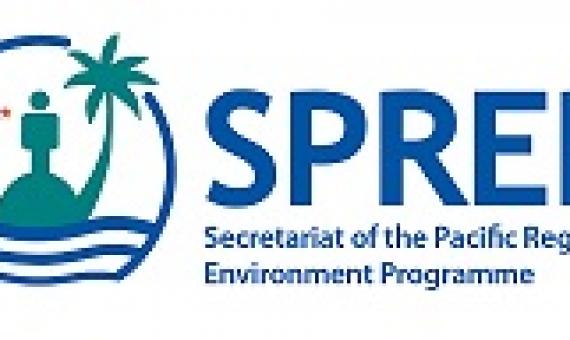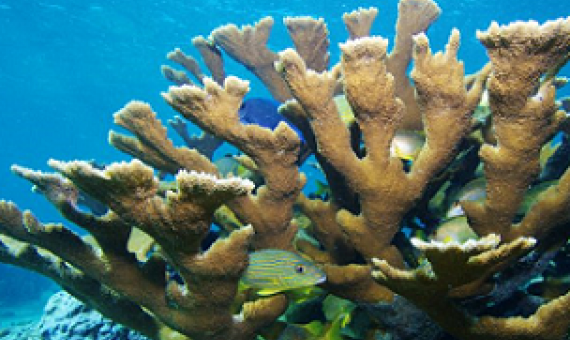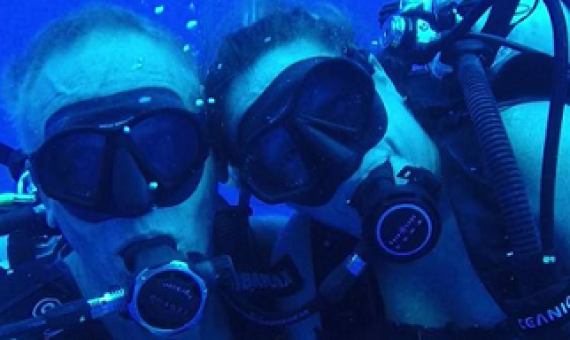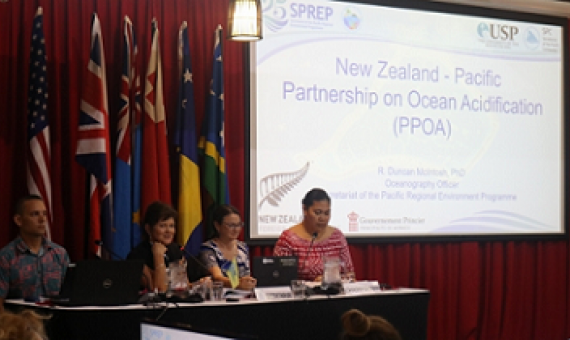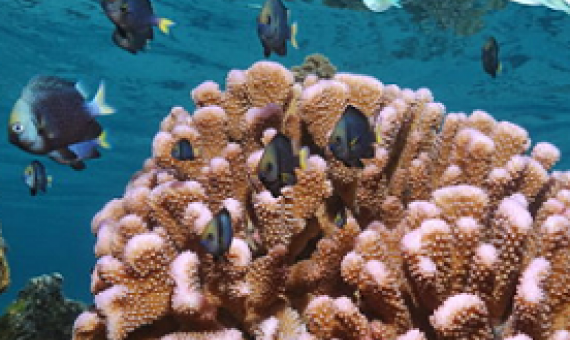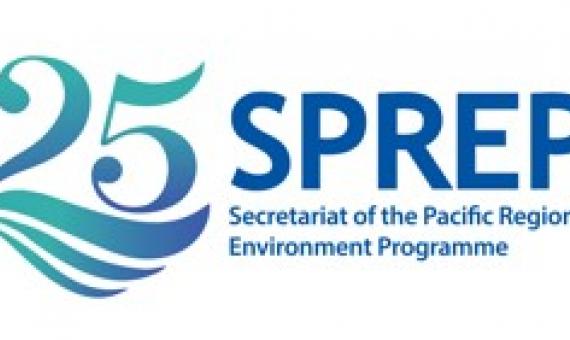Coral Reefs and People in a High-CO2 World: Where Can Science Make a Difference to People?
Increasing levels of carbon dioxide in the atmosphere put shallow, warm-water coral reef ecosystems, and the people who depend upon them at risk from two key global environmental stresses: 1) elevated sea surface temperature (that can cause coral bleaching and related mortality), and 2) ocean acidification. These global stressors: cannot be avoided by local management, compound local stressors, and hasten the loss of ecosystem services.

